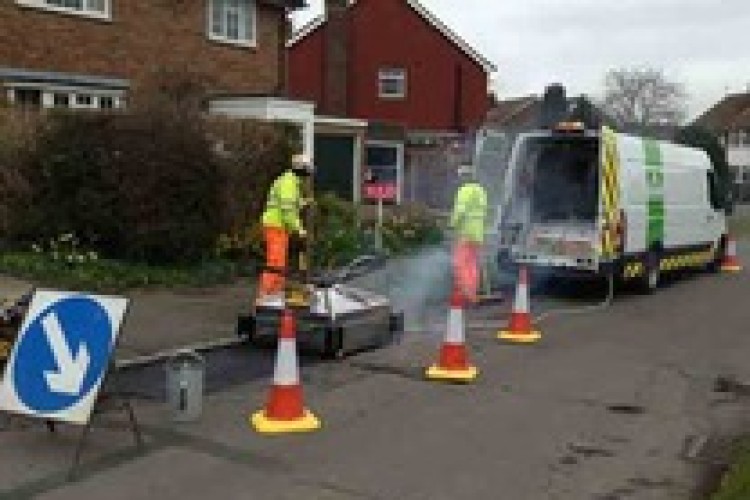The Highways Agency is being turned into a government-owned company next year in a move that is supposed to prevent its budgets being changed during planning cycles. The aim is to promote efficiency by ending the trend of stop-start funding.
This might improve maintenance on the 4,400 miles of road for which the Highways Agency is responsible, but will do little for the 183,000 miles of road under local authority control.
A report on road maintenance published by the House of Commons public accounts committee today blames stop-start funding for highway authorities being unable to plan efficiently.
The report says that Department for Transport’s “unpredictable and fluctuating budgets for road maintenance over decades have put value for money at risk”.
It says: “Following the Spending Review 2010, the Department cut road maintenance budgets by £1.2 billion over the four years from April 2011. Since then it has intermittently made available a total of £1.1 billion additional funding on nine separate occasions for various reasons, including in response to flooding or winter damage to the roads.”
The report notes that the DfT is in the process of changing the Highways Agency’s status to a limited company, with funding settlements of at least five-years and it has set out its capital allocation for local road maintenance: £976 million a year for the six years from April 2015.
However, it says that the DfT should also keep to the long-term budget allocations it has set out for local highway authorities “to enable them and the supply chain to plan ahead confidently and efficiently”.
Committee chair Margaret Hodge said: "Public satisfaction with the condition of our roads is at the lowest level since the surveying of this began in 2008. In the last survey only 30% of the public were satisfied with the condition of the roads and the speed and quality of repairs. The greatest problems are in London and the southeast, according to the Department for Transport.
“The department’s piecemeal and stop-go approach to funding for road maintenance in recent decades has made it difficult for highways authorities to maintain roads cost-effectively. There has been too much reactive work in response to flooding and other events and not enough focus on preventative work that is less expensive in the long-term.
“The Department’s unpredictable and fluctuating budgets for road maintenance over decades have put value for money at risk.

“It seems ludicrous that in 2010 the Department cut road maintenance budgets by £1.2 billion over the four years from April 2011, but then it has intermittently given £1.1 billion additional funding on nine separate occasions for various reasons, including in response to flooding or winter damage to the roads.
“The Department must see that prevention is better than cure. It costs £52 to fill in a pothole, or £70 in London, yet it costs over £30 million to pay and process compensation claims from road users for damages arising from poor road conditions.
“Infrastructure UK has said that savings of 10-20% are associated with certainty of funding, and the Department says it is taking steps to make its funding more certain in the future.
“Whilst we understand the unpredictable nature of winter weather, too much road maintenance is inefficient because it is reactive and unplanned. Concentrating activity in the winter months is inefficient and costly. Some local highway authorities are far too reactive to events, rather than anticipating, predicting and preventing disrepair.
“Routine maintenance is essential to deal with increasingly frequent severe weather and to prevent long-term damage to infrastructure, but a fall in the proportion of revenue funding to capital funding risks a reduction in this type of maintenance.”
She added: “A good understanding of the state of the roads is absolutely essential for planning cost-effective preventative maintenance. Yet, there are too many gaps in highways authorities’ information about what road infrastructure assets they have and what condition they are in. The Highway’s Agency holds no information on 70% of its drainage systems, for example.
“Better information, better planning of funding and a pro-active stance on maintenance are what the Department must promote to have a chance of pleasing unhappy road users."
Commenting on the report, Civil Engineering Contractors Association chief executive Alasdair Reisner said: “For many years CECA has highlighted the need for greater visibility and certainty of funding for maintenance, strategically managing roads rather than patching up problems as they arise. We welcome the recommendations in today's report which, if implemented, should deliver better value and better roads."
The Public Accounts Committee 15th report, Maintenance of strategic infrastructure: roads, can be downloaded at http://www.publications.parliament.uk/pa/cm201415/cmselect/cmpubacc/105/10502.htm
Got a story? Email news@theconstructionindex.co.uk



